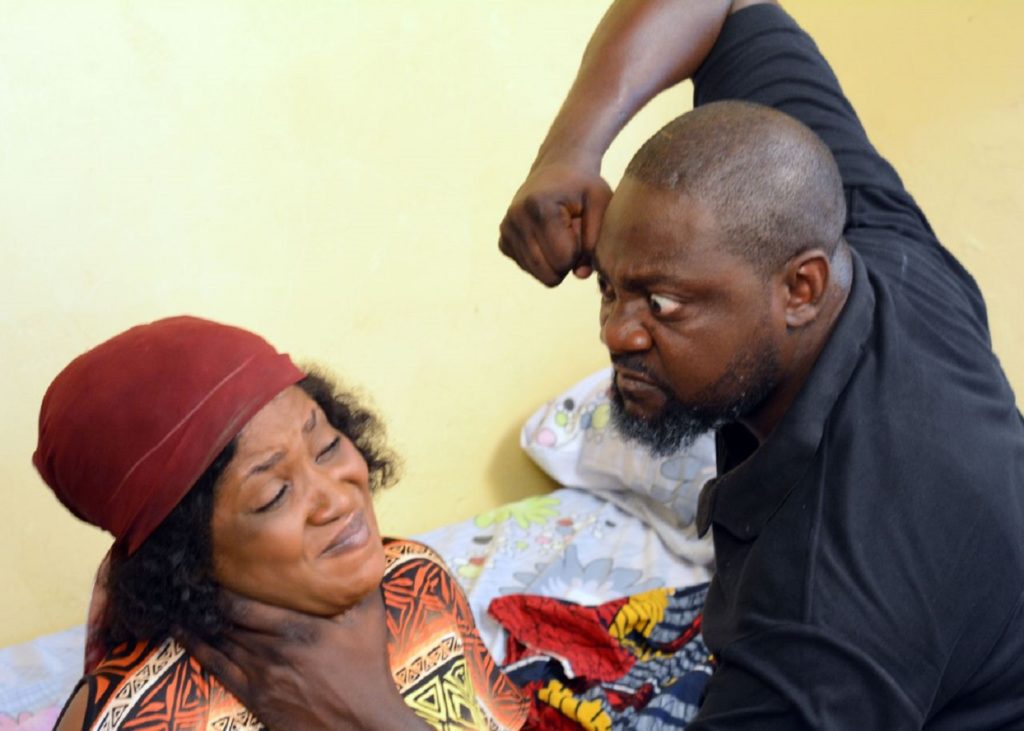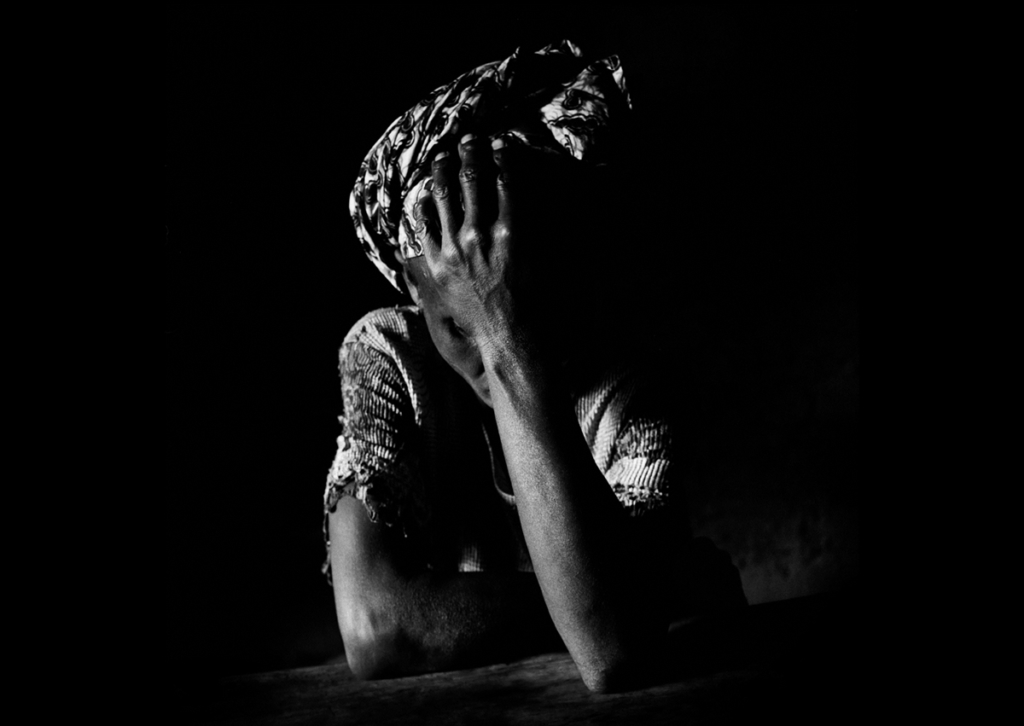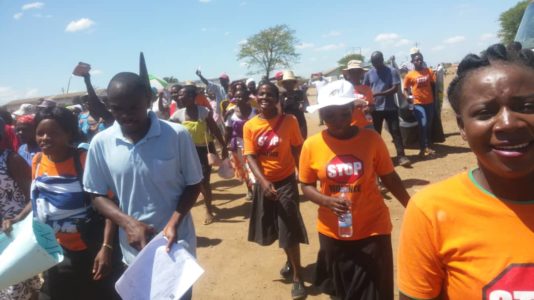Women, Violence and Peace
Zimbabwe is a fragile state whose inhabitants have experienced much violence as part of political conflicts. Since 2000, committed women and entire groups of women, e.g. urban market traders, have repeatedly been the targets of gender-based and sexual violence.
Gender-based violence is also a major problem in everyday life, as our project partners report.
Women, whether in Zimbabwe or Switzerland, need to be better protected from violence in relationships.
Women are also perpetrators. And women are central pillars for peace policy. Their commitment to non-violent conflict resolution is not only important – it can also be promoted.
Since Covid
The Shadow Pandemic since the outbreak of the Covid pandemic has also been strongly felt in Simabbwe. The term Shadow Pandemic was established by the UN to refer to the increase in domestic violence during COVID-19. In Zimbabwe, domestic violence in physical, mental and sexual forms increased by about 40%. It was also strongly felt that more and more young people are involved in sexual activities. This manifests itself in the form of STDs and teenage pregnancies. The reason for this is that they are not busy enough because of the school closures and do not receive the necessary guidance from the pandemic. Marriage of girls out of financial need has also increased.
Legal persecution
On 14 May 2020, three young female politicians were abducted and tortured. The high-profile and award-winning human rights lawyer Beatrice Mtetwa says it clearly in a letter to the President of Zimbabwe: This is a crime that has been perpetrated against women because, as women, they interfered in national politics.
Zimbabwe’s progressive constitution as a basis for improvement
Zimbabwe has since 2013 had a constitution that enshrines gender equality as a fundamental principle of the nation. However, much remains to be done before existing laws are in line with the constitution and implemented. The commitment of many organisations and groups to human rights and in particular to women’s rights is therefore central to building an equal and peaceful society. fepa has partners in Zimbabwe who advise, support and network women.
Today’s reality

Violence against women is widespread in Zimbabwe. It is difficult to determine the extent of it. Women have many reasons not to report the perpetrators. The police usually remain inactive, many women are not aware of their legal rights, they are also tormented with insensitive, accusatory questions or even subjected to physical attacks.
The fact that the health services and the police do not systematically collect data on violence against women also makes it difficult to determine the extent of acts of violence.
Here are a few figures from surveys and scientific studies:
- Almost half of all women have experienced physical or sexual violence. One in three women experiences sexual violence before the age of 18.
- 43 per cent of girls between 13 and 17 said they were forced to have sexual intercourse for the first time.
- Zimbabwe has one of the world’s highest rates of underage girl marriages: Three years after Zimbabwe’s Constitutional Court declared child marriages unconstitutional and set a minimum age of 18, the government has yet to put structures in place to implement this court ruling.
- 6.6 percent of women between the ages of 15 and 24 are HIV-positive. In sub-Saharan Africa, gender-based violence is the main cause of HIV and AIDS infections among women. Men often have extramarital sexual relations and their wives do not have the power to enforce the use of condoms. So they live in constant fear of infection.
Causes
The main cause of gender-based violence is the power imbalance between men and women. Women are disadvantaged in many areas: Land ownership, education, inheritance rights, etc.
- There is a culture of silence among women. 34.7 per cent of women surveyed said they had not told anyone that they were being abused. Violence against women is seen as a family problem and policy measures are therefore not taken. (Zimbabwe Health and Demographic Survey of 2005-2006).
- Women who have no income of their own are most often exposed to physical violence because they depend 100 per cent on their husbands. One affected woman says of herself: “I wish so much that I had a job. My husband always beats me with clenched fists when I tell him that we have nothing to eat at the end of the month. I can’t even report him to the police because that would only make my situation worse. If he was locked up, I wouldn’t be able to take care of my children at all…” (Gender Based Violence and its Effects on Women’s Reproductive Health: The Case of Hatcliffe, Harare, Zimbabwe).
- Data from Zimbabwe shows that intimate partner violence is most often perpetrated against women between the ages of 15 and 49. These women have children to care for and are dependent on their partners. 35 percent of this age group has suffered physical violence. Every third woman suffers emotional violence from her husband.
- A woman’s level of education is crucial. A scientific study found that 77 percent of women who suffered physical violence had only primary education, 20 percent had secondary education and 3 percent had tertiary education.
- fepa project partner PYDC Gender hits a crux of the matter with the demand “Give us books, not husbands”.
Consequences: Health and well-being at risk
Many studies have shown: Across the planet, gender-based violence is a huge and underestimated factor in illness and death.
- Violence against women has serious psychological, physical and social consequences. Survivors suffer from depression, panic attacks, guilt, shame and loss of self-esteem. Sometimes they are disowned by their partners and their families. Pregnancies, dangerous abortions, sexually transmitted diseases, sexual dysfunction, chronic infections leading to infertility – all these are consequences of acts of violence against women. They destroy health and life energy.
- Rape and physical violence cause more deaths of women than other factors such as cancer, traffic accidents, wars and malaria. One in five days of illness for a woman between the ages of 15 and 45 is due to gender-based violence.
This makes it easier to understand why Cynthia Gwenzi is not only the gender coordinator for PYCD but also the “wellness officer”. It is not about sauna facilities, but about questions of well-being. Wellness as a question of survival!
Future perspectives for the reduction of violence…
The problem of gender-based violence has been recognised in Zimbabwe. The government developed a 2012-15 strategy against gender-based violence. But not much has been implemented yet. Ultimately, such changes cannot be achieved simply or alone by the good programmes of international organisations. It especially needs the many committed women, including our partner organisations YETT and PYCD Gender. You can find out what these organisations are doing personally from the two activists.
… and the strengthening of peace
The same applies to strengthening peace and transforming conflicts: The participation of women at the grassroots level is a prerequisite for success. The starting position for this is not good as long as there is a lack of rights and opportunities for women to participate in decision-making processes. So here, too, we know what needs to be done: to empower women at all levels so that everyone has an equal say in the future. Let’s do it!


